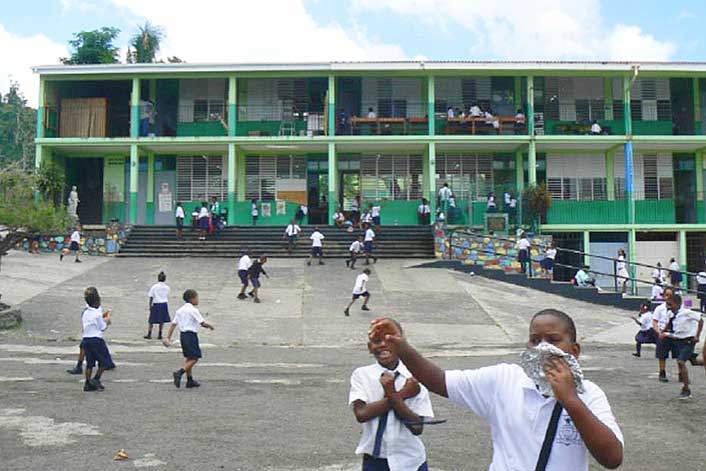Facts About Our Work in Dominica
The Caribbean island of Dominica continues to rebuild after Hurricane Maria made landfall as a powerful Category 5 with winds more than 155 mph on Sept. 18, 2017. The massive hurricane caused catastrophic damage island-wide. More than three years after the storm, as life on the island returns to normal, Food For The Poor (FFTP) is committed to helping families in need in Dominica.
In response to Hurricane Maria, FFTP shipped 94 tractor-trailer loads of the following items:
- Nonperishable food
- Two-burner liquid petroleum gas (propane) stoves
- Commercial-grade and standby generators
- Five-gallon buckets with cleaning supplies
- Rebuilding supplies, such as lumber, nails, zinc panels and tools
The building materials supplied by FFTP have been used to repair 12 churches and eight schools. Materials also were distributed to help families repair their homes damaged by the hurricane.
In 2021, FFTP shippedone tractor-trailer loadof essential items to families in need in Dominica.
FFTP works with primary partner R.E.A.C.H. (Reaching Elderly Abandoned Citizens Housebound). The charity also donated a heavy-duty forklift capable of lifting entire empty containers to help reduce congestion at the port and unload aid faster.
The first fishing village established by FFTP in the Eastern Caribbean in the town of Castle Bruce on the east coast of Dominica survived the storm. It is the largest settlement in St. David Parish with a population of nearly 1,400.
In 2016, the fishing village was equipped with four fiberglass boats with 40 HP motors, which are shared by a team of 16 to 28 fishermen. All the fishermen received engine maintenance training. In addition to the boats and motors, the village has been equipped with coolers and a freezer, a locking storage shed, fishing tackle and safety equipment, GPS finders, depth finders, and a gear shed for the equipment.
In 2014, FFTP implemented sanitation, poultry, and school expansion projects in Dominica.
- The Dubique Sanitation Project removed dangerous pit latrines and installed flush toilets in the homes of families living in the rural mountain community of Dubique.
- FFTP established a poultry project for families living within the Carib Indian Reserve. The poultry provides these families with a self-sustaining source of protein.
- St. John’s Academy School received building material for a school expansion project.
The population is approximately 74,584. The language is English, and Catholicism is the largest religious denomination. The currency is the Eastern Caribbean dollar and the GDP per capita is $9,900.
